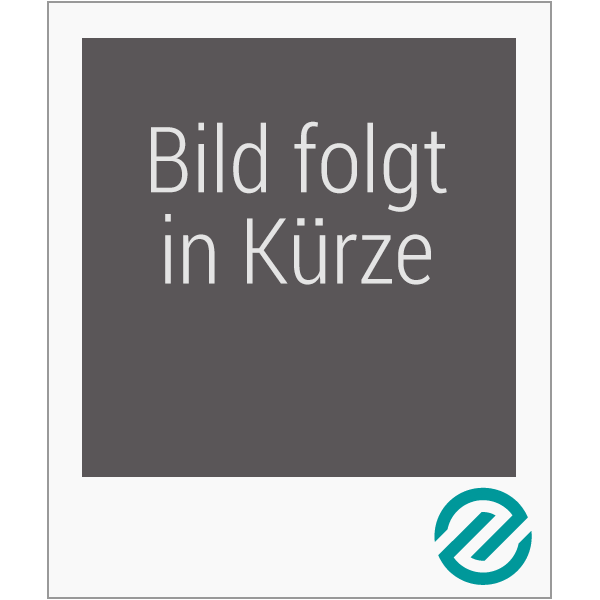In Retrospect and Review an international team of scholars explore East German literature, and the circumstances of its production, in the last phase of the German Democratic Republic's existence. The provocative claim of the novelist, playwright and essayist Christoph Hein, 'Ich nehme außerdem für mich in Anspruch [...] elfmal das Ende der DDR beschrieben zu haben,' serves as the starting-point for the twenty-three contributors to the volume, who consider the many and varied ways in which Hein and his fellow writers signalled and diagnosed the demise of the GDR. The fraught relationship between the state and its intellectuals inevitably forms a consistent theme in the studies of writers as diverse as Anna Seghers and Kito Lorenc, Christa Wolf and Jurek Becker, or Irmtraud Morgner and Heiner Müller. However, the process of 'retrospect and review' also reveals the innovative and independent-minded character of the culture of the GDR's later years. Several contributors trace the emergence of a strong and distinctive women's writing which increasingly and subversively imposed itself on the hitherho patriarchal literary landscape of the GDR. And in the literature of the 1970s and 1980s experimental narrative strategies take on a political role as a counter-discourse to a stubbornly inflexible political order.
Contents: Robert ATKINS and Martin KANE: Introduction. Dennis TATE: Keeping the Biermann Affair in perspective. Repression, resistance and the articulation of despair in the cultural life of the Honecker era. Dieter SCHLENSTEDT: Der aus dem Ruder laufende Schriftstellerkongreß von 1987. Werner BIECHELE: Das alles ist unsere Geschichte. Der deutsch-deutsche Literaturstreit und die Autoren. Hans-Peter ECKER: Wer will schon eine dürre Gouvernante sein? Zum Umgang mit DDR-Literatur nach der Wiedervereinigung. Modellfall 'Subjektive Authentizität'. Georgina PAUL: Towards The Politics of Narration. Narrative theory and GDR prose literature. Colin GRANT: Brigitte Burmeister's Anders oder Vom Aufenthalt in der Fremde. Tracing the texts in a 'new novel'. J.H. REID: Territories of the Soul. 'Sujet' und 'Geschichte' in Wolfgang Hilbig's Eine Übertragung. Christiane ZEHL ROMERO: 'Vertreibung aus dem Paradies?' GDR women's writing reconsidered. Ian WALLACE: Anna Seghers. A reputation to be reassessed? Agnès CARDINAL: Irmtraud Morgner's Rumba auf einen Herbst. Peter GRAVES: Kassandra. Also an allegory of the GDR's demise? Hannes KRAUSS: Rückzug in die Moderne. Christa Wolf und Virginia Woolf. Ricarda SCHMIDT: Erlaubte und unerlaubte Schreib-weisen in Honeckers DDR. Christoph Hein und Monika Maron. Malcolm HUMBLE: Eberhard Hilscher's Die Weltzeituhr. GDR literature without inhibitions. Ian HILTON: Heinz Czechowski: 'Streit mit dem weißen Papier'. Ewout van der KNAAP: Kito Lorenc und das Paradox des heimatgebundenen Avantgardisten. Axel GOODBODY: Literature on the environment in the GDR. Ecological activism and the aesthetics of literary protest. David ROCK: 'Totalitäre Systeme sind in der Innerlichkeit ihrer Subjekte befestigt, oder sie lösen sich auf.' Some thoughts on Jurek Becker's GDR writing and his break with the GDR. Gisela SHAW: Einar Schleefs Gertrud als 'episches Werk'. Peter HUTCHINSON: Stefan Heym and the Wende. Imre KURDI: Sezieren als Trauerarbeit. Zur Preußen-DDR-Problematik in Dramen Heiner Müllers. Frank HÖRNIGK: Heiner Müller's Endspiele. Brian KEITH-SMITH: Werner Tübke. Artist extraordinary.
Contents: Robert ATKINS and Martin KANE: Introduction. Dennis TATE: Keeping the Biermann Affair in perspective. Repression, resistance and the articulation of despair in the cultural life of the Honecker era. Dieter SCHLENSTEDT: Der aus dem Ruder laufende Schriftstellerkongreß von 1987. Werner BIECHELE: Das alles ist unsere Geschichte. Der deutsch-deutsche Literaturstreit und die Autoren. Hans-Peter ECKER: Wer will schon eine dürre Gouvernante sein? Zum Umgang mit DDR-Literatur nach der Wiedervereinigung. Modellfall 'Subjektive Authentizität'. Georgina PAUL: Towards The Politics of Narration. Narrative theory and GDR prose literature. Colin GRANT: Brigitte Burmeister's Anders oder Vom Aufenthalt in der Fremde. Tracing the texts in a 'new novel'. J.H. REID: Territories of the Soul. 'Sujet' und 'Geschichte' in Wolfgang Hilbig's Eine Übertragung. Christiane ZEHL ROMERO: 'Vertreibung aus dem Paradies?' GDR women's writing reconsidered. Ian WALLACE: Anna Seghers. A reputation to be reassessed? Agnès CARDINAL: Irmtraud Morgner's Rumba auf einen Herbst. Peter GRAVES: Kassandra. Also an allegory of the GDR's demise? Hannes KRAUSS: Rückzug in die Moderne. Christa Wolf und Virginia Woolf. Ricarda SCHMIDT: Erlaubte und unerlaubte Schreib-weisen in Honeckers DDR. Christoph Hein und Monika Maron. Malcolm HUMBLE: Eberhard Hilscher's Die Weltzeituhr. GDR literature without inhibitions. Ian HILTON: Heinz Czechowski: 'Streit mit dem weißen Papier'. Ewout van der KNAAP: Kito Lorenc und das Paradox des heimatgebundenen Avantgardisten. Axel GOODBODY: Literature on the environment in the GDR. Ecological activism and the aesthetics of literary protest. David ROCK: 'Totalitäre Systeme sind in der Innerlichkeit ihrer Subjekte befestigt, oder sie lösen sich auf.' Some thoughts on Jurek Becker's GDR writing and his break with the GDR. Gisela SHAW: Einar Schleefs Gertrud als 'episches Werk'. Peter HUTCHINSON: Stefan Heym and the Wende. Imre KURDI: Sezieren als Trauerarbeit. Zur Preußen-DDR-Problematik in Dramen Heiner Müllers. Frank HÖRNIGK: Heiner Müller's Endspiele. Brian KEITH-SMITH: Werner Tübke. Artist extraordinary.

